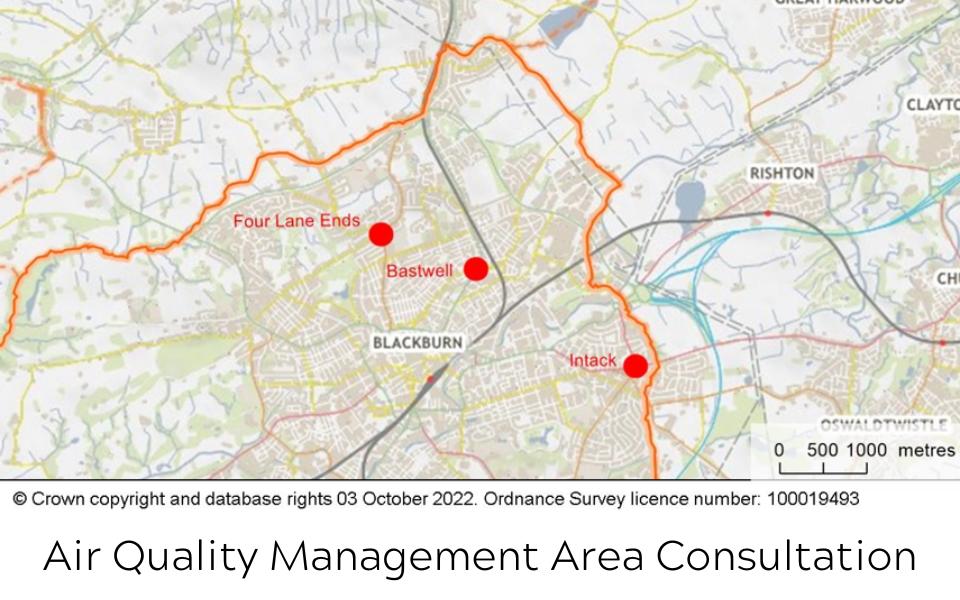Air quality improves in Blackburn with Darwen
Published Tuesday 7 March 2023 at 13:39

Residents are being asked to have their say on the removal of three Air Quality Management Areas (AQMAs) in the borough as Nitrogen Dioxide levels decrease.
AQMAs were introduced in the residential areas of Intack, Bastwell and Four Lane Ends over ten years ago, with the intention of lowering the levels of Nitrogen Dioxide (NO2), which is mainly caused by road vehicle exhaust emissions and can have negative health impacts.
The AQMAs are located at:
- Intack – the junction between Accrington Road, Shadsworth Road and Whitebirk Road – introduced in 2005
- Bastwell – the junction between Whalley New Road, Plane Street and Whalley Range – introduced in 2005
- Four Lane Ends – the junction between Shear Brow, Revidge Road, Pleackgate Road and Lammack Road – introduced in 2012
The national objective for NO2 levels is set by the Government at an annual average of 40µg/m3.
After consistent monitoring of the NO2 levels within these areas, we are pleased to find that emissions have been well below the national objective since 2016 in both Intack and Bastwell, and since 2017 at Four Lane Ends.
There was an even sharper decline during the Covid-19 pandemic, and although traffic increased in 2021, it still remains lower than in pre-pandemic levels.
Please see the attached document for more information and statistics on the results.
Residents are being asked to have their say about these new figures and the suggested removal of the AQMAs in these areas. You can get in touch in three ways:
- Email – publicprotection@blackburn.gov.uk
- Write – Air Quality Consultation, Public Protection Service, Blackburn with Darwen Borough Council, Davyfield Road Depot, Roman Road Industrial Estate, Blackburn, BB1 2LX
- Telephone – 01254 267699
The consultation is open until Tuesday 7th March – Tues 4th April 2023.
The monitoring of air quality within the borough contributes towards our work to reduce emissions across Blackburn with Darwen as part of the Climate Emergency Action Plan (CEAP). Find out more here.
